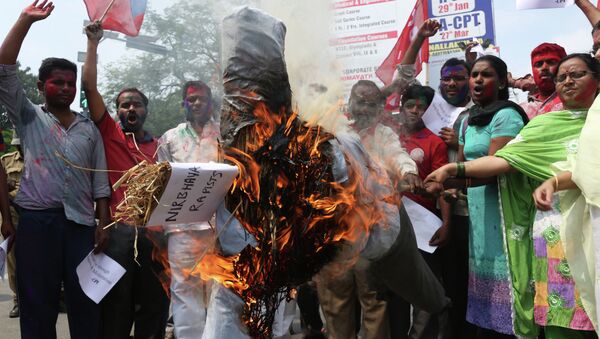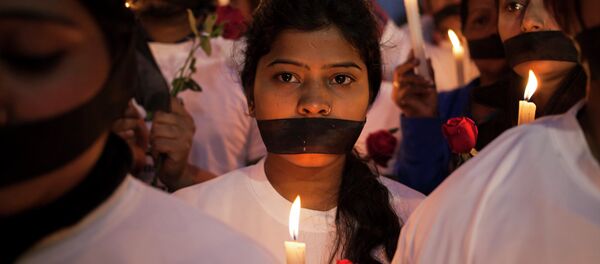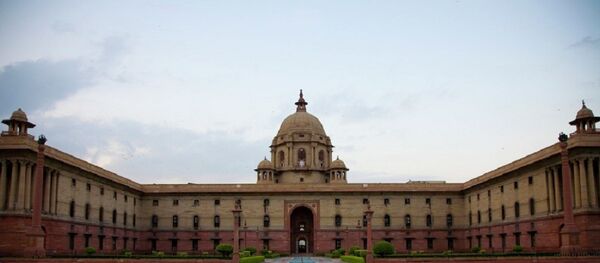Twenty-three-year-old Jyoti Singh was brutally attacked and raped on a bus by six men in New Delhi in 2012. Her injuries were so severe she died in hospital from organ failure and brain injuries.
The barbaric details of her sexual assault and killing sent shockwaves around the world and protests erupted across India to highlight the country's attitude towards rape and sexual violence.
Jyoti's story, 'India's Daughter', has caused outrage because it includes an interview with one of the convicted rapists, bus driver, Mukesh Singh. His remorselessness is captured on film during an interview in Tijar jail.
@IndiasDaughter Watched the documentary.Made me cry.The only solution is education.We need to change the mindset of the society.
— Samia (@samia_atiq) March 6, 2015
Mukesh told film-maker Leslee Udwin: "A decent girl won't roam around at nine o'clock at night. A girl is far more responsible for rape than a boy."
Outrage and anger erupted in New Delhi after excerpts of the interview appeared online. His comments caused outrage on social media — others in India questioned whether he should have been given the opportunity to express his views.
@lesleeudwin You are my hero! As much as I hope someone from India made this documentary, I cannot be more proud that you chose to do it.
— swapn_a (@swapn_a) March 5, 2015
The interview with Mukesh remains at the centre of the controversy; and not just for its content.
According to a report in Navbharat Time, Mukesh Singh was allegedly paid 40,000 Rupees (£422) for his interview by the producers of 'India's Daughter'.
The report suggests that an investigation within Tihar jail found that Mukesh initially demanded 200,000 (£2113) for the interview, but this was later negotiated to 40,000 Rupees (£422).
Now the news reports say Mukesh Singh, convicted rapist was paid money.. That does raise some uncomfortable questions
— Sunanda Vashisht (@sunandavashisht) March 6, 2015
Indian Home Minister Rajnath Singh has promised an inquiry into how the documentary makers gained access to the prison and is threatening to take legal action against the BBC for airing the film. It's still banned from being shown in India.
The Home Ministry in India has also issued a direction to make sure the documentary is not available on social networking websites.
Leslee Udwin, the British film-maker behind the documentary, denies breaking any contract with Tijar jail by broadcasting 'India's Daughter'; saying that the request for a global ban has no legal or practical basis.
Four of the men, including the bus driver, await the outcome of a final appeal and face the death sentence — one killed himself in jail; a juvenile convicted over the gang rape and murder is due for release this December.
The victim's father, Badri, told news channel NDTV that everyone should be able to watch the documentary to understand "the bitter truth" about his daughter's death.
"Everyone should watch the film. If a man can speak like that in jail, imagine what he would say if he was walking free."
A spokesman for the BBC said: "This harrowing documentary, made with the full support and cooperation of the victim's parents, provides a revealing insight into a horrific crime that sent shockwaves around the world and led to protests across India demanding changes in attitudes towards women."
The inspiration for 'India's Daughter', according to Leslee Udwin, was the way the country reacted to the crime — protesting in unprecedented numbers braving water cannons, police batons and teargas.
The Delhi rapist's views are shocking, but they infect our police too, says @UndercoverMutha http://t.co/g3gU0ihQLV pic.twitter.com/66tgxVeguZ
— Independent Voices (@IndyVoices) March 5, 2015
Udwin continues by saying:
"I wanted to applaud the reaction of the Indian people to the crime with this film. But that has been turned around by this ban, which is an attempt to muzzle free speech."
Despite the ongoing controversy of the film in India, Udwin says it will be a powerful tool for change.
"I have constantly stressed this is not an Indian problem, it is a global problem. I remain confidence that this film will be a powerful tool for change," she said.




